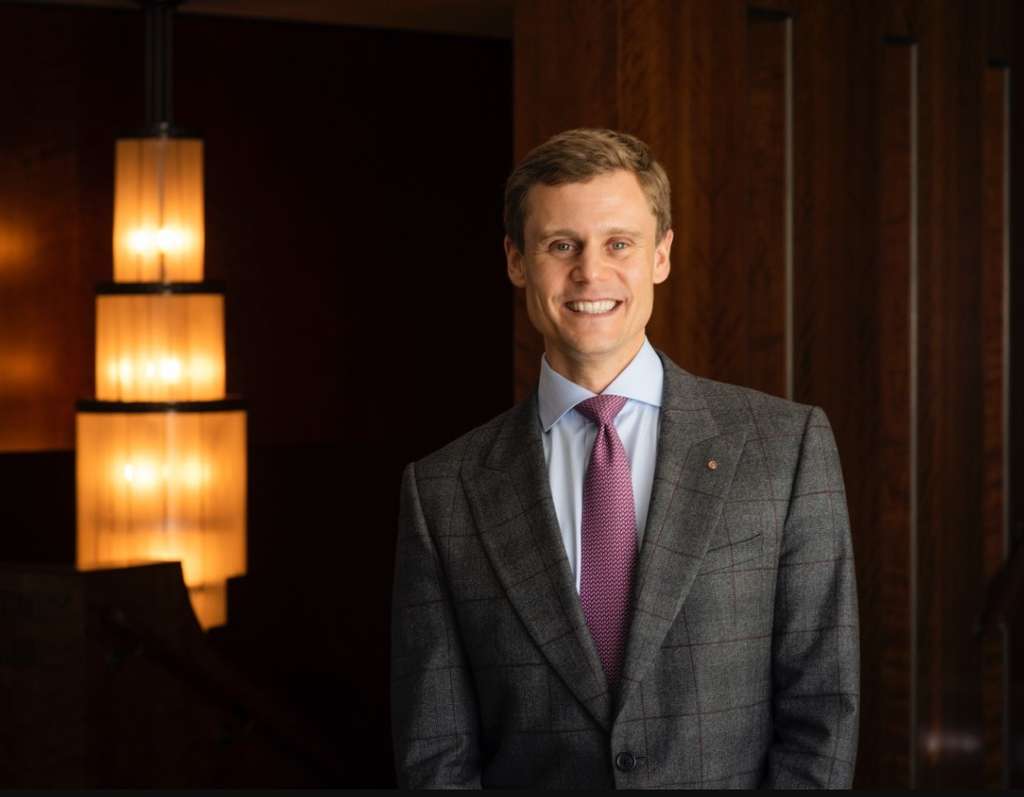Is the Travel and Hospitality Industry Prepared to work with the Pandemic? Part Two – Taming the Dragon!
One of the greatest traits of the human spirit is resilience. We, by our innate nature, bounce back. And one can already see the changes.
By virtue and extension of that, the travel and hospitality industry is no different.
Even at the cost of having to observe social distancing, thereby leading to abysmally low footfalls, airlines, hotels and restaurants are opening up in the current phase of the Pandemic - with what appears to be less fear and more caution.
So the way forward is to work with the Pandemic and to employ the four Ms in fighting COVID 19, namely - Monitor, Manage, Mitigate and out-Manoeuvre.
I see everyone do their bit. Professionals are conferring across continents, getting into a mental huddle to scope out the problem, to exchange notes on what they are facing in their corner of the world, and to lay out the roadmap for the future.
Governments are ascertaining and strategizing, without doubt, and coming forth with sops to remedy and resurrect. The medical world has come out as the true heroes and warriors, already doing more than what could be expected of them. The laboratries are working fiercely to find a cure.
We are, obviously so, looking at new ways to equip ourselves with new knowledge, new SOPs, new tactical planning and a huge attitudinal shift to regain ground in our businesses.
I came across a one-day class being offered by Forbes Travel Guide on Disaster Recovery Management. Filip Boyen, the CEO of Forbes Travel Guide, through the Seminar, offers a "unique opportunity to test business strategies for hotel reopening." A model hotel in New York and a computer-driven simulation are employed to teach decision making for post-lockdown reopening to Senior Management. The virtual class is being taught by the irrepressible Cathy Enz, Cornell University School of Hotel Administration Professor Emeritus and the legendary hotelier, Ali Kasikci, and aims at preparing the hoteliers for the new, hereto extraordinary business environment.
With an uncertain, unfamiliar terrain looming large and with a long, arduous and uphill trek ahead, the industry is bucking up to get into the recovery mode.
In the second part of my chat with Kenneth Vincent - Veteran Hotelier and Author, David Ourisman - Founder of Ourisman Travel and Virtuoso Luxury Travel Advisor and Jannes Soerensen - General Manager, The Beaumont, we talk about the road ahead, the challenging journey we are embarking upon and how we must equip ourselves for it.
L. Aruna Dhir - What should the hotel owners do to swin across and not sink?
Kenneth Vincent - Hotels have long classified expenses as variable, semi-variable, and fixed. To survive in this situation, that definition must be set aside and all expense line items must be considered variable. That includes such items as insurance premiums, mortgage payments, franchise fees, and mandated reserves for replacements. Hotels can't survive of course with a 25% occupancy rate, but cutting those big "fixed costs" will extend the period of survivability.
Franchise companies, lenders, and many management companies require that a defined % of rooms' revenue be placed in a "reserve for replacement" account. The intent being to assure that money is always available for complying with franchise required changes (such as upgrading bedding/TVs/ etc.), replacing FF&E to protect the lender's collateral, and to avoid losing market share as FF&E wears out. These entities can help hotels struggling in this Pandemic by suspending such requirements.
Franchise companies make money from franchise fees. They will not hesitate to pull a franchise for a single hotel when fees are in arrears. Of course with many, since most of their franchised hotels now unable to pay fees it makes sense to waive or defer fees rather than cancelling 40% or more of their franchise contracts. Likewise, lenders will foreclose on a single hotel when it defaults on the mortgage payments. However, few lenders are prepared to foreclose on a large number of hotels and their interests are better served in deferring payments, lowering interest rates, and perhaps even lending more money to defaulting properties.
David Ourisman - Hoteliers will need to accept that they will lose significant sums of money in the short-to-mid term. Their difficulty is strategizing in the midst of so many unknowns. The development of a vaccine is a necessary development before travel volumes can return to pre-COVID levels. While some economies may be necessary, drastic steps such as laying off or furloughing entire hotel staff are short-sighted. Hotels have made significant investments in attracting and training their staff, and those ladies and gentlemen are a hotel's most important asset. They embody the culture and values of the hotel for their guests, and they cannot easily be replaced.
Jannes Soerensen - The obvious answer is to manage their short-term variable costs. The less obvious answer, that not all have heeded, is to look at long-term survival and to plan for 2 to 3 years hence, and not just the next few weeks. I am fearful of some of the short-termism I am seeing.
L. Aruna Dhir - What will be the shape of things to come in the near future and the year(s) ahead?
Kenneth Vincent - My crystal ball, and I do have one on my desk, has been ominously quiet on this subject. However, I think it is safe to say that some hotels simply will not re-open, thus shrinking the inventory of hotel rooms. That, along with the easing of travel bans will allow occupancies to begin to inch upward. However, I don't see a sudden rebound to former levels in the near term.
Improving occupancies will be largely dictated by three factors. One, the speed and details of lifting the travel bans; two, returning to more normal activity by companies and associations and three, the personal demand (now considerably built up) vs the fear factor of people. The desire to travel may be tempered by the fear factor for a considerable time.
David Ourisman - I see domestic travel slowly starting to come back in the Fall with fairly healthy demand for the Festive season. If there is no second wave of COVID, travel should continue to recover throughout the Spring, but if a second wave hits, all bets are off.
The industry will not recover to 2019 levels until there is a vaccine. Luxury travelers will feel less wealthy, having suffered financial losses in their businesses and in the stock market. Though hotels will try to maintain current rates, I don't think they will be successful in this attempt.
Jannes Soerensen - The next six months will be difficult, particularly for large city hotels, as the world slowly eases back to 'normal'. But I have a sense that there is pent-up demand amongst the corporate travel community and I know our leisure clients are rebooking for next year. So in Q2 next year, I would expect to see a return to stronger levels.
This industry is supple. It has been through other crises and it has adapted and sprung back, and it will do so again. This does, of course, depend on how this virus evolves, how quickly we can have easy and widespread testing, and how and when the scientific community comes up with a vaccine. We are all hoping for this.
L. Aruna Dhir - The world as we knew it has changed. Terms like the "New Normal" are being bandied about. So what is the Altered Environment, the Travel and Hotel Industry is getting into?
Kenneth Vincent - Since there has never been a "normal" in such a diverse industry it is hard to say what the new normal may look like. For example, in recent years some hotels have offered the option to have bed linens changed every other day or on request vs. daily. This was presented as saving water and soap to help the environment. Of course, in reality, it was to save money in most cases and I know of no case where that saving was offered back to the guest.
Defining the "new normal" would probably require a book size answer because there are so many issues. Complicating this is the fact that a hotel is not a business, but a group of businesses conducted in a given building or location. There are rooms, restaurants, bars, banquet halls, exhibit centers, exercise rooms, business centers, and a long list of entertainment options from beaches, to pools, to casinos, to golf courses and marinas. Each of those venues will have a considerable list of changes to be defined and dealt with.
There are few though that are going to be obvious. Hotel rooms are not by their nature germ proof environments. Blankets, draperies, bedspreads and carpets are germ collection points. It simply isn't practical to shampoo the carpet after every checkout (and what about the Hall?). Certainly there will be major changes in the laundry issues of both room linen and food linen.
The big banquet rooms seating hundreds or thousands with 10 sq.ft. per person will cease to exist. Many free-standing restaurants are requiring reservations when they re-open even though they didn't take reservations at all before. This allows them to control the crowds and thus the spacing. Will that become a new norm in hotel restaurants? Bar seating may become a thing of the past. Spacing in exercise rooms and business centers will be different and the use of space dividers may become common.
Every hotel has a long list of "frequently touched surfaces" that must be sanitized frequently, going forward. Front desk counters and pens, doorknobs, elevator buttons, menus, luggage carts, public restrooms, pool furniture, ice machines, and vending machines will have to be kept squeaky clean just for starters. It is quite a probability that some hotels will not re-open some pools and F&B outlets.
David Ourisman - The new normal will remain difficult until the threat of COVID is beyond us. As long as potential guests are in fear of contracting the virus — and guests are expected to wear masks and maintain social distancing, the Alternative Environment will be difficult to wade through.
And not just from the practical view of running the operation! For example, reducing the number of tables in restaurants and maintaining six feet between tables, may force resorts to keep occupancy levels well near the half mark.
Jannes Soerensen - The 'new normal' will be the old normal, insofar as people travel and stay in hotels to make personal and business connections. I say we will be physically distant but emotionally close.
So notions of personal space may have altered and an appreciation for enhanced hygiene measures will exist, but we will get used to these new protocols and will continue to seek experiences that feed and nurture us.
L. Aruna Dhir - What will be the foremost strategies to reckon with for the hotel companies, in order to aspire to keep a healthy bottom line?
Kenneth Vincent - I'm not sure anyone can really answer this yet. It is certain that all revenue and expense items must be reviewed without pre-conceived opinions. Room rates, resort fees, F&B pricing, franchise fees, the cost of loyalty programs, financing options, and all other line items must be viewed with a zero-based starting point.
Since payroll costs are the largest single expense in most hotels these issues will need to be reviewed acutely. Staffing needs, productivity standards, union contracts, benefits, and even tipping policy will need an overhaul.
Since the travel industry is so interwoven between hotels, airlines, rental cars, tourism bureaus, and free-standing resorts, entertainment, and restaurant venues; the situation will remain fluid for many months or years.
All that having been said, I think it is not misplaced to reaffirm that no time in history has the travel industry, the hotel industry included, been subjected to such a violent upheaval and that puts us in unknown and unexplored territory.
David Ourisman - From the point of view of luxury hoteliering, I am taking the risk of answering this question a little differently.
The story is told of Isadore Sharp, President of Four Seasons, visiting one of his hotels during a time of economic turndown. He commented to the hotel's GM that the lobby flowers weren't fresh. The GM responded that he was economizing because fresh flowers cost so much. Mr. Sharp replied to this effect: cutting the quality standards for which the hotel was known would result in even deeper losses long into the future.
Jannes Soerensen - Well, there are no revenues at the moment so there are no profits!
Companies need to control their variable costs; they need to work hand in hand with their suppliers to ensure everyone's survival; they need to work hand in glove with their travel partners, openly and fairly; they need to be transparent and fair in their dealings with their guests; they need to invest in their staff.
Companies will be judged on how they dealt with this crisis. Consumers will make choices based on how companies navigated these difficult times.
The industry is stilting back. There are lessons to be discovered, issues to be looked anew, and a lot of learning and unlearning to take place.
But the silver lining is, for the most of the three tiers of generations involved, we are being minted as professionals who would have learned to tackle the dragon and triumph over it despite severe trials and tribulations.
Triumphs such as these are the sweetest!



